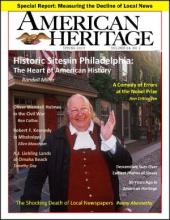June 1971
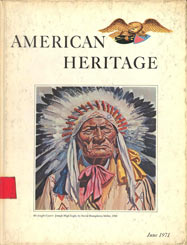
Departments
POSTSCRIPTS TO HISTORY
Features
The job ran in the family; both his uncle and grandfather were Secretaries of State. Home life in a parsonage taught him piety, and the law precision. The rigid views of a world divided between good and evil he worked out, apparently, himself. Private letters and new taped recollections help explain the shaping of the man who set our Cold War foreign policy
An artist recalls his Midwestern home town and the poet who made it famous
Patent medicines were usually neither patented nor medicinal, which is not to say they didn’t (and don’t) have any effect
The longtime adviser to American Heritage wrote history not simply as a means of talking with other historians, but in order to talk to the general reader.
Introduced not quite a century ago under a name born for oblivion, the game of tennis promises to last forever
A domino theory, distant wilderness warfare, the notion of “defensive enclaves,” hawks, doves, hired mercenaries, possible intervention by hostile powers, a Little trouble telling friendly natives from unfriendly—George III went through the whole routine
Operation Market-Garden promised to lay an airborne red carpet to victory, but its final objective proved to be “a bridge to far.”
The Big Ditch had so far been a colossal flop, and Teddy Roosevelt desperately needed an engineering genius who could take over the job and “make the dirt fly.” The answer was not the famous Goethals, but a man whom history has forgotten.
Invented as part of a magazine promotional scheme in 1892, the Pledge of Allegiance has had a controversial career right from the start
A few dazzling words about that emerging metropolis, delivered in 1871 by Congressman J. Proctor Knott. Edited for 1971 visitors by David G. McCullough
No battle in American history has won more attention than the relatively insignificant defeat at the Little Bighorn River in 1876.
Issue by year
2023


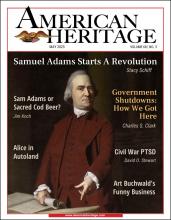



2022

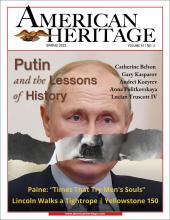




2021







2020




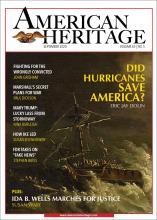



2019

